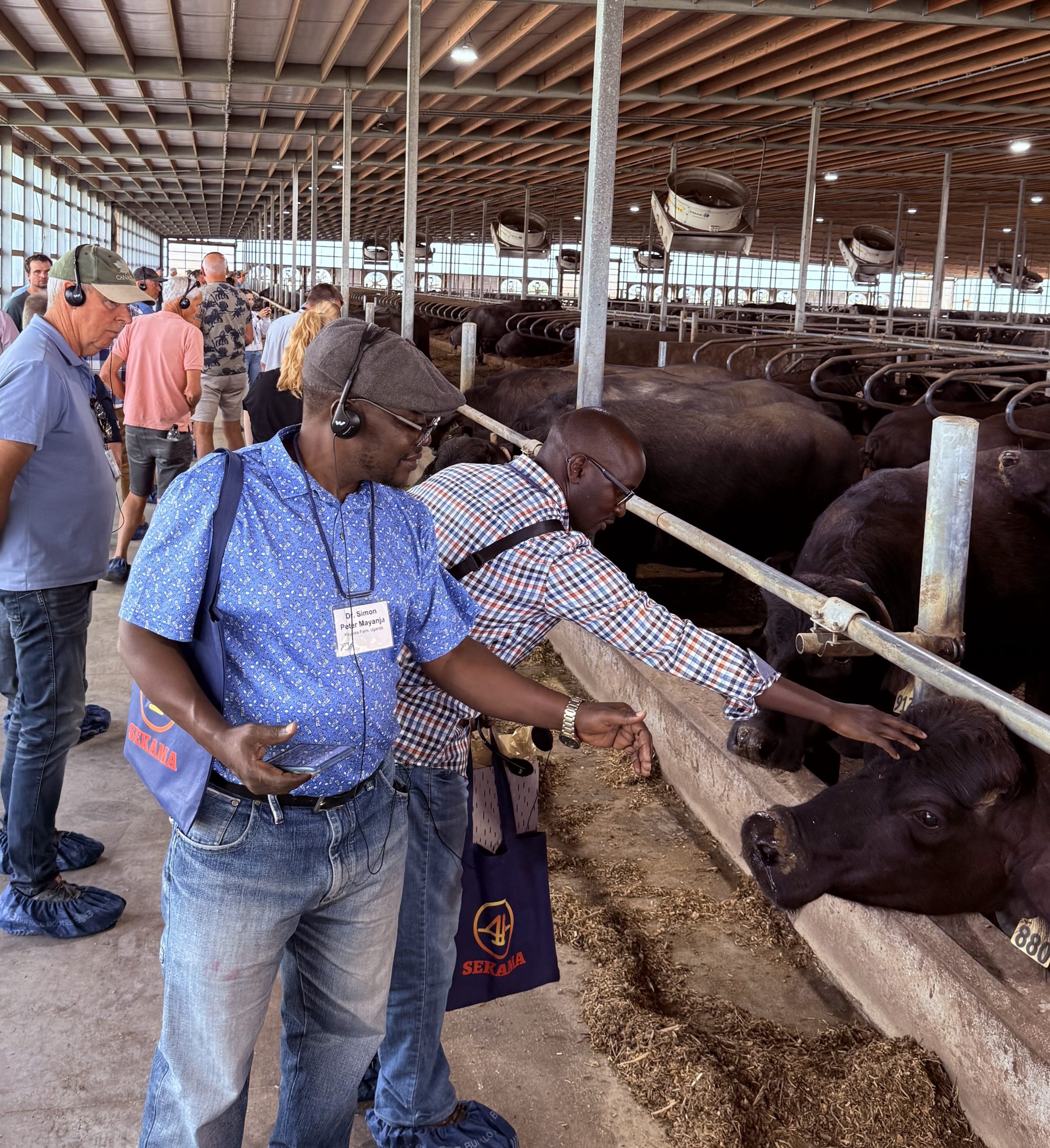
On Thursday, September 12, 2025, our Sekama team, along with a farmer from Uganda, had the privilege of visiting farms through the invitation of the Progressive Dairy Operators (PDO). It was more than just a tour; it was a chance to see firsthand how Canadian farms are adapting, innovating, and preparing for the future. Beyond the barns and fields, some of the best insights came from the casual side conversations we had with fellow visitors.
One of the most memorable stops was at Koskamp Family Farms Ltd, home to 130 dairy cows and an impressive 230 water buffalo. Here, we discovered just how valuable buffalo can be for dairy farming. While their milk yields are lower and production periods shorter than cows (about 9 liters a day compared to 37), buffalo bring major advantages: they are far more resilient to common diseases such as mastitis, and their milk is naturally richer, averaging 8 percent fat compared to cow milk’s 4 percent. At Koskamp, this advantage is fully embraced. The family processes 2,000 to 3,000 liters of pasteurized buffalo milk every week at Kampkreek Dairies, crafting soft cheese and other products that stand out for their quality. Established in 1974, the farm’s story is also one of careful succession planning, with multiple generations working together to carry the vision forward. For Ugandan farmers, the idea of introducing buffalo genetics sparked a lot of excitement, especially given their potential to strengthen resilience and improve nutrition back to East Africa.
At Donker Lane Dairy, we were fascinated by how technology is reshaping dairy management. The farm uses Delaval’s Deep Blue AI Behavior Analysis system to monitor cows in real time, tracking rumination and movement, learning patterns, and alerting farmers to potential health issues. This blend of tradition and innovation was inspiring to witness. Similar strengths in planning and forward thinking were also clear at Speknaven Dairy and Blanshard Dairy, where multigenerational families continue to build sustainable farm businesses.
Behind it all, PDO plays a key role. As a volunteer, not-for-profit group, they create opportunities like these farm visits, helping farmers connect, learn about innovative technologies, and share progressive ideas that push the industry forward.
For Sekama, the visit was about more than learning new practices. In conversations with fellow visitors, farmers agreed to partner with us on exchange visits. Together we are planning for them to come to Uganda in 2026 to meet and learn from our farmers. These exchanges will deepen our partnerships, strengthen knowledge sharing, and open new opportunities for growth. We are excited to begin planning these trips and to see the impact they will bring to both our communities.